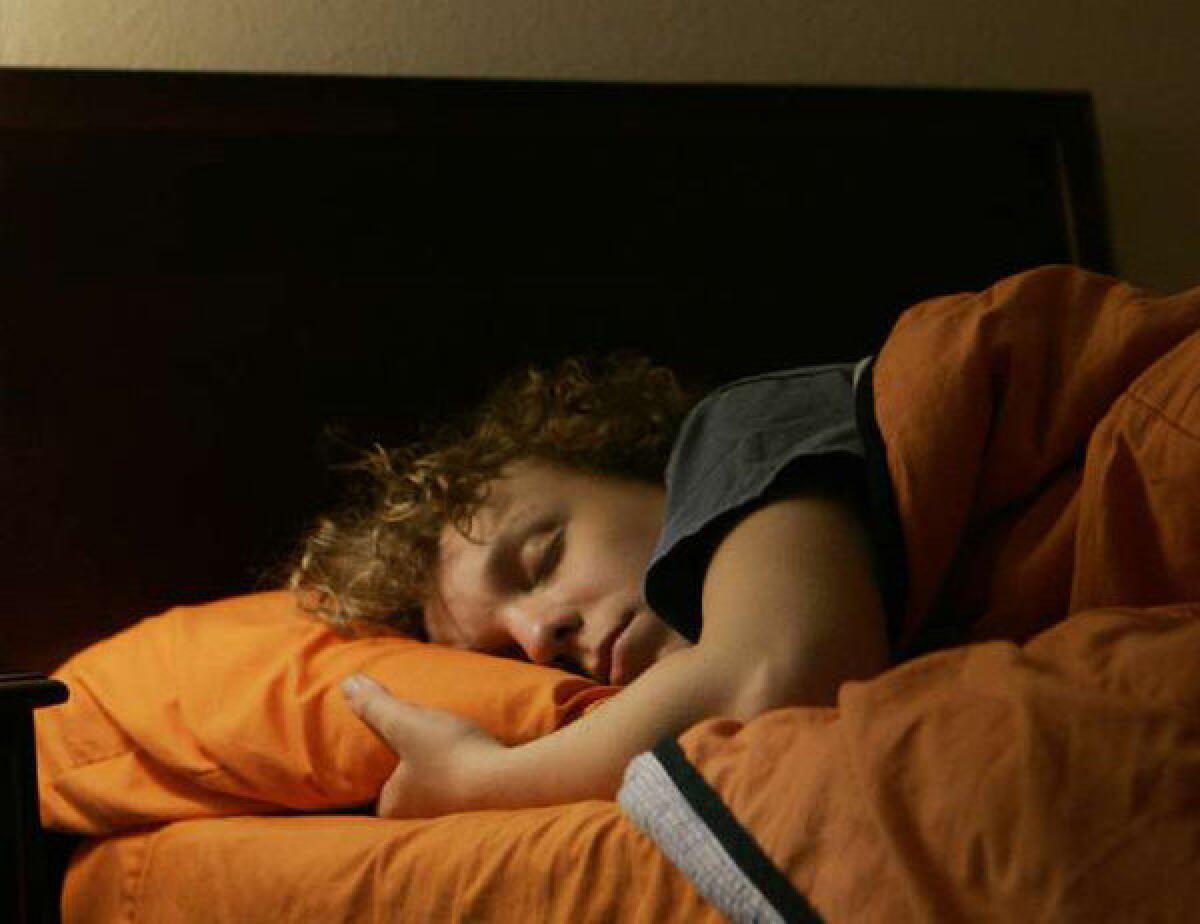Stress, anxiety and pain disturb Americans’ sleep, survey finds

- Share via
If you suspect you’re not getting enough sleep, you’re probably right: A new survey says 83% of Americans don’t get a good night’s sleep on a consistent basis.
Why not? Stress and anxiety were cited as the top reason by 48% of the 1,008 adults interviewed by the polling firm Harris Interactive. In addition, 47% of those surveyed said they simply weren’t able to turn off their thoughts.
Science and Health: Sign up for our email newsletterAmong other culprits:
* 38% of Americans said pain interfered with their ability to catch the necessary ZZZZs.
* 32% said they were too overtired to rest.
* 23% blamed background noise.
* 23% chalked up their lack of sleep to children or pets.
* 18% said they had breathing problems that kept them from sleeping soundly.
* 17% said their spouses or significant others were to blame.
Overall, women (88%) were more likely than men (78%) to report sleep deprivation or sleep disorders, the survey found.
People in households with a total income of less than $35,000 a year were also more likely than those in households that earned more than $100,000 a year to say they had sleep problems – 55% of low-income adults blamed stress and anxiety for poor sleep, and 45% of them said pain kept them up at night. (Among high-income adults, those figures were 41% and 31%, respectively.)
However, people in those income groups were equally likely to have their sleep interrupted by their children, pets or their own thoughts, the survey found.
Results of the 2013 Rx Sleep Survey were released Monday at the SLEEP 2013 meeting in Baltimore. The poll was commissioned by Targeted Medical Pharma Inc., a Los Angeles biotech company.
Return to Science Now.





